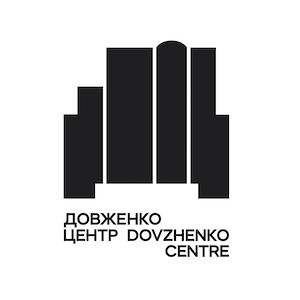e-flux Video & Film is excited to begin the new year with a new edition of the Staff Picks online screening series presenting Oleksandr Dovzhenko’s Earth (1930, 76 minutes).
A tale of generations, Earth begins with the death of a grandfather, which leads to tumultuous times for his son Opanas and his grandson Vasyl. Set in the early years of the Soviet Union, the film portrays the everyday life of Ukrainian peasants, depicting the complex process of land collectivization that was part of the rapidly changing political and social conditions of the time. When a wealthy landowner appropriates the land of peasants, Vasyl leads a youth movement to form collectivized farming efforts in Ukraine. The landowner becomes enraged when the peasants manage to obtain a tractor, which leads him to commit murder. While sympathetic to the struggles of peasants, Dovzhenko does not provide oversimplified narrative solutions in this fictional story, which unfolds against the context of the forced, often brutal collectivization that took place in Ukraine between 1928 to 1933.
The last and most known installment of Dovzhenko’s trilogy that also included Zvenyhora (1928) and Arsenal (1929), Earth is today considered one of the most significant works in the history of Soviet avant-garde film and praised for its formal mastery, including its stunning cinematography and powerful montage sequences. Characteristic of lyrical style and a multitudinal open-ended story, the film received criticism from Soviet censors for its insufficient support of collectivization efforts and its focus on nature over ideology. The film was banned just nine days after its release. It was not until 1958, after the death of Stalin and after Dovzhenko’s own death, that Earth was made accessible in the Soviet Union and soon gained recognition from international film festivals and critics as one of the most important films of the silent era.
We express our gratitude to the Oleksandr Dovzhenko National Centre for their efforts in restoring the film from its original 1930 version and for kindly providing us with a copy.
Earth will be available for streaming from January 1–31, 2023. Watch the film here.
About the filmmaker
Oleksandr Dovzhenko was a Ukrainian film director and screenwriter, considered to be one of the founders of Soviet montage theory. Born in 1894 in the village of Vorontsovka in what is now the Cherkasy Oblast of Ukraine, Dovzhenko began his career as a painter and illustrator before turning to filmmaking. He first studied at the Kyiv Art Institute and later moved to the city of Kharkiv where he fell in with a circle of leftist writers and artists. Around 1925, he co–founded VAPLITE, an acronym for the self–styled “Free Academy of Proletarian Literature,” which promoted new literary trends with a decidedly Ukrainian focus. He then joined the Odesa Film Studios in Ukraine’s south to learn the art of filmmaking. At that time Dovzhenko was already heavily influenced by the theories of Sergei Eisenstein and the Soviet montage movement. His early films, such as Zvenyhora (1928), Arsenal (1929), Earth (1930) were highly innovative in their form and cemented his reputation as one of the foremost directors of Soviet avant-garde film. Throughout his career, Dovzhenko focused on the themes of the political struggles of the poor as well as on Ukrainian national traditions. He was very influential in the Soviet film industry, serving as the head of the Kyiv Film Studio (currently Dovzhenko Film Studios) as well as working at Mosfilm Studio. Dovzhenko died in Moscow in 1956. In 1994, the Oleksandr Dovzhenko National Centre (Dovzhenko Centre) was launched at the former Kyiv Film Factory as the largest Ukrainian film archive, preserving thousands of films and archival records from the history of Ukrainian and Soviet cinema.
About the series
e-flux Video & Film: Staff Picks is a monthly streaming series of staff picks and recommended videos designed to disrupt the monotony of an algorithm. Before the end times of big data, we used to discover suggested content along dusty shelves in video rental stores, where Post-it notes scribbled by shift workers implored us to experience the same movies that made them guffaw, scream, or weep. Sometimes the content bored us, sometimes it overwhelmed us, and sometimes, as if by magic, it was just right. e-flux invites you to relive this rental store mode of perusal, with personalized picks curated through judgment that does not take into consideration your viewing history.
For more information, contact program [at] e-flux.com.

